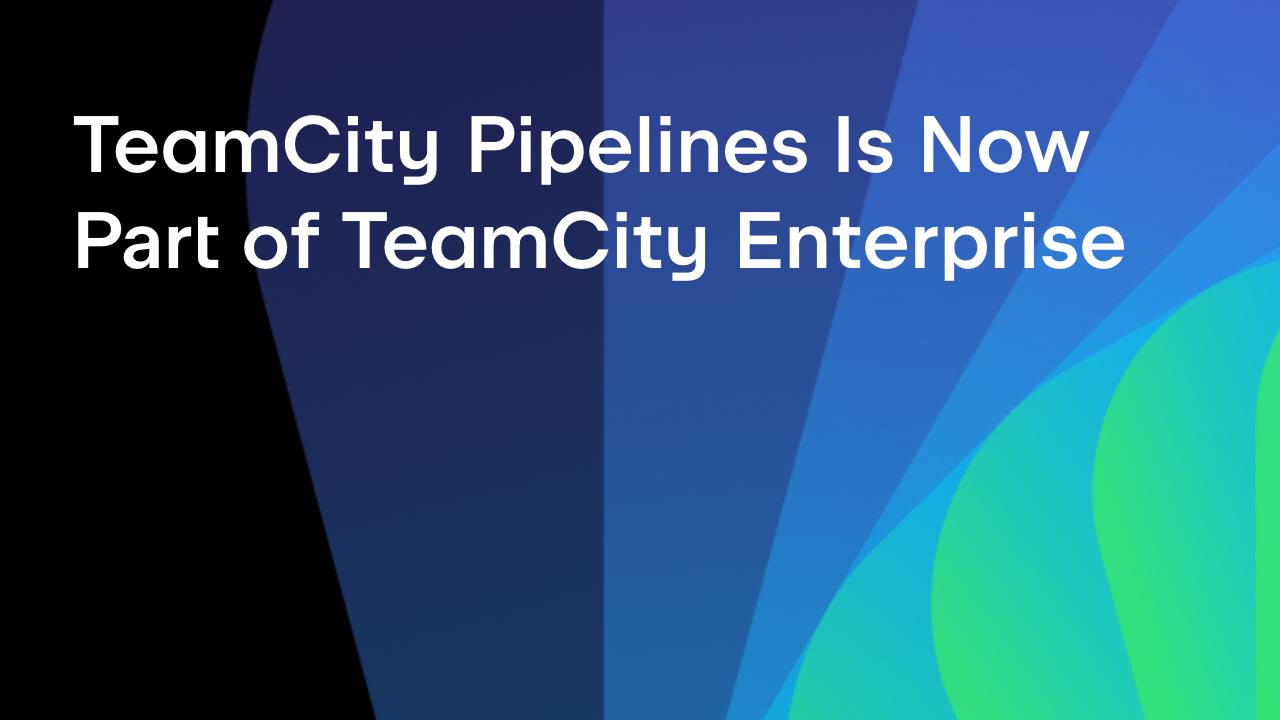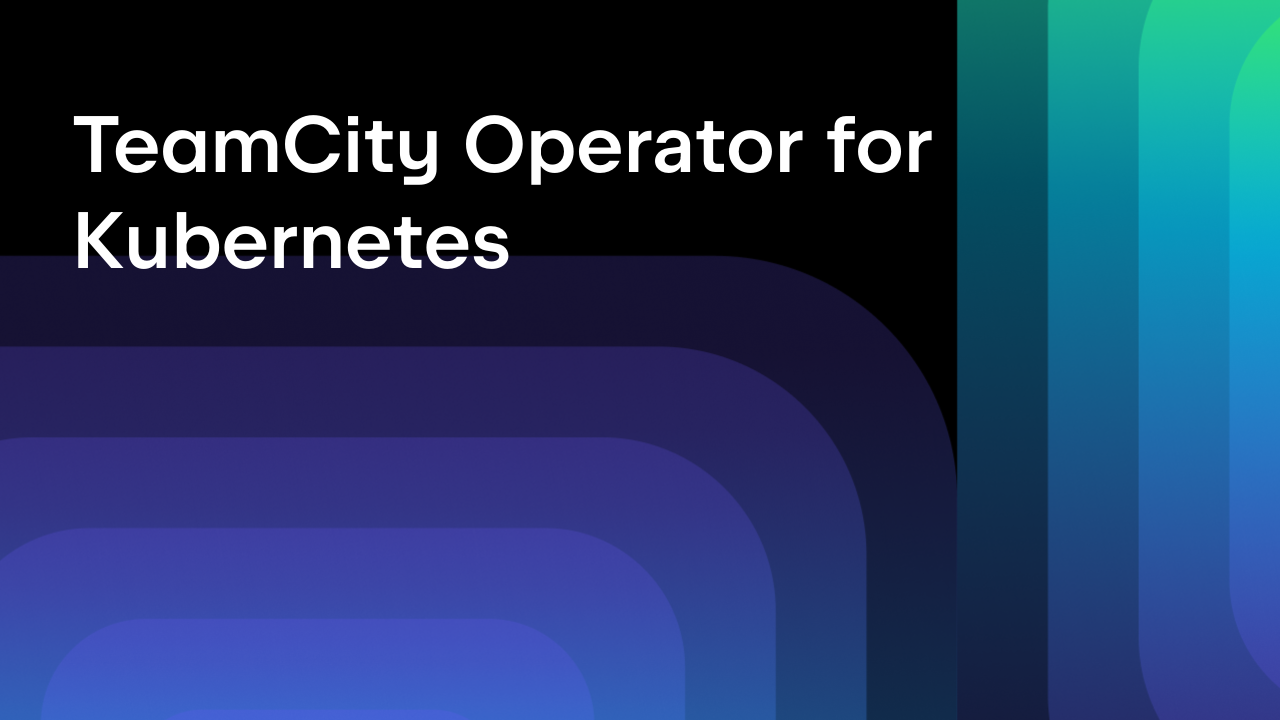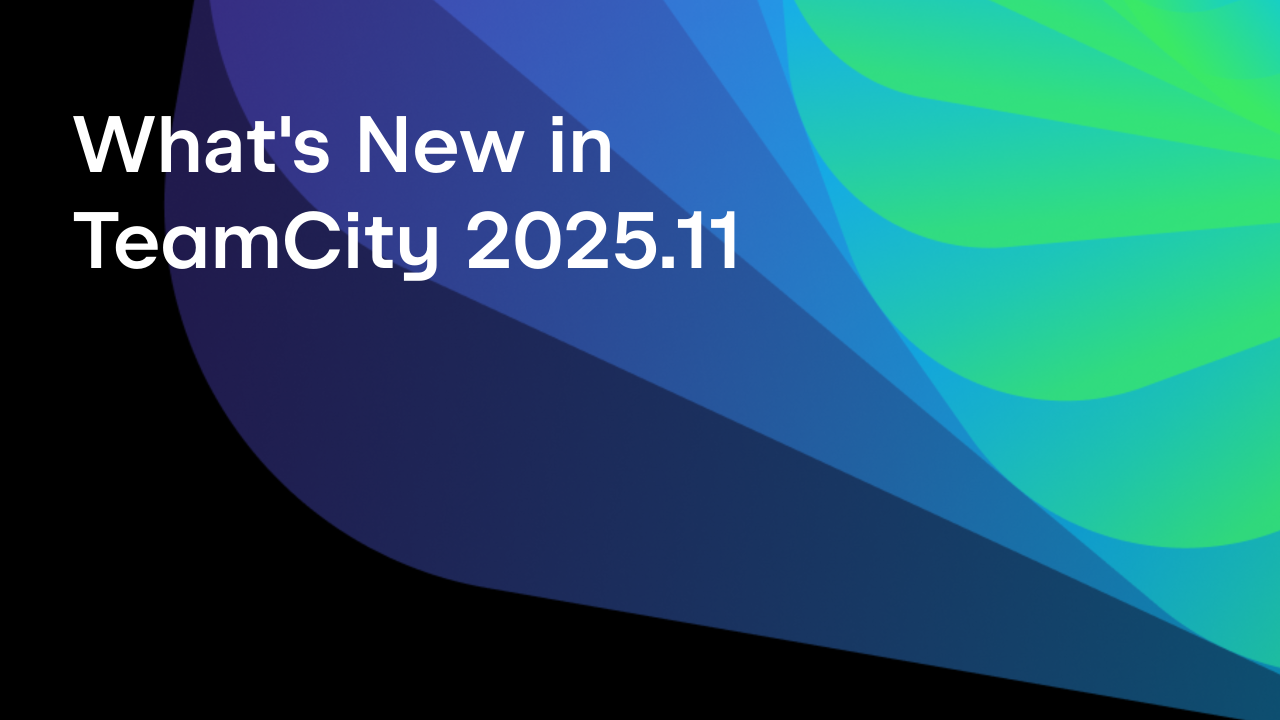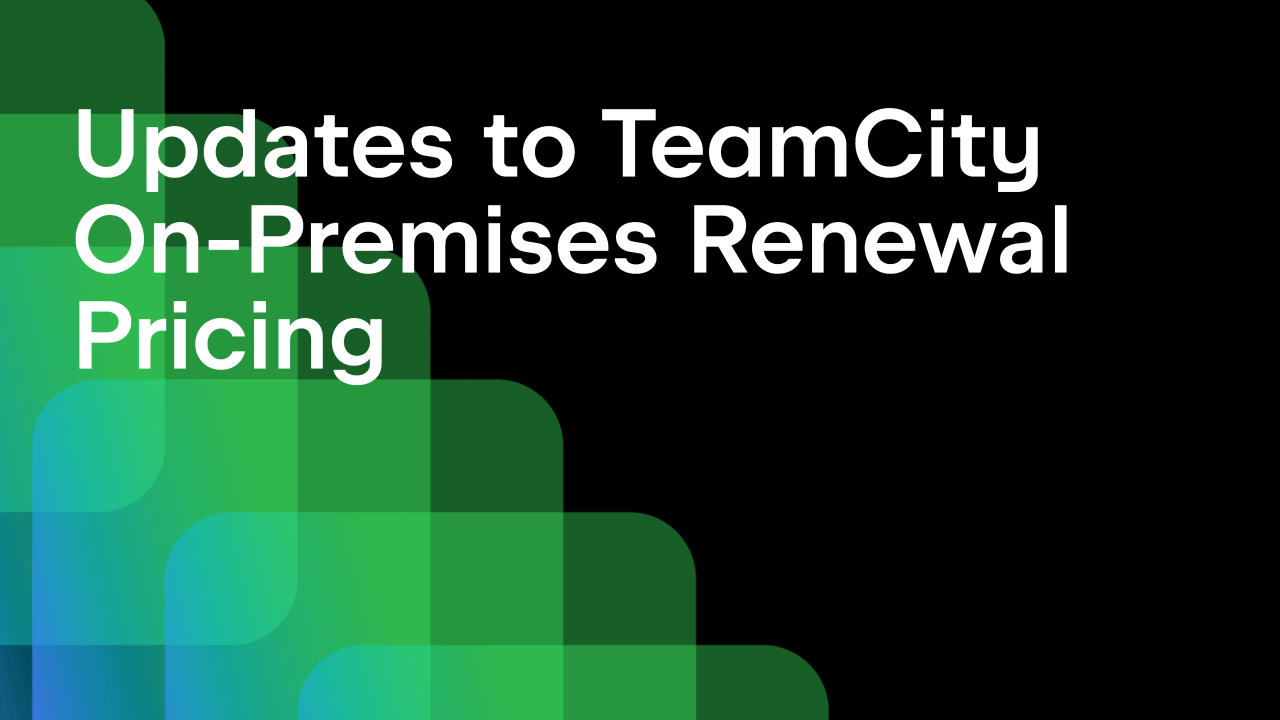TeamCity
Powerful CI/CD for DevOps-centric teams
TeamCity 2022.10: Sakura UI, Improved Integration With Amazon AWS, Out-of-the-Box HTTPS Support, Google OAuth Authentication, and More.
TeamCity 2022.10 comes with the Sakura UI enabled by default, introduces many cloud-related features including the AWS credentials management system and out-of-the-box terminal access to AWS EC2-based build agents, and adds important improvements to VCS integrations. Server administrators will love the new streamlined way to implement HTTPS for on-premises TeamCity installations. Also, a new authentication module for using Google accounts and a number of long-requested features have been implemented.
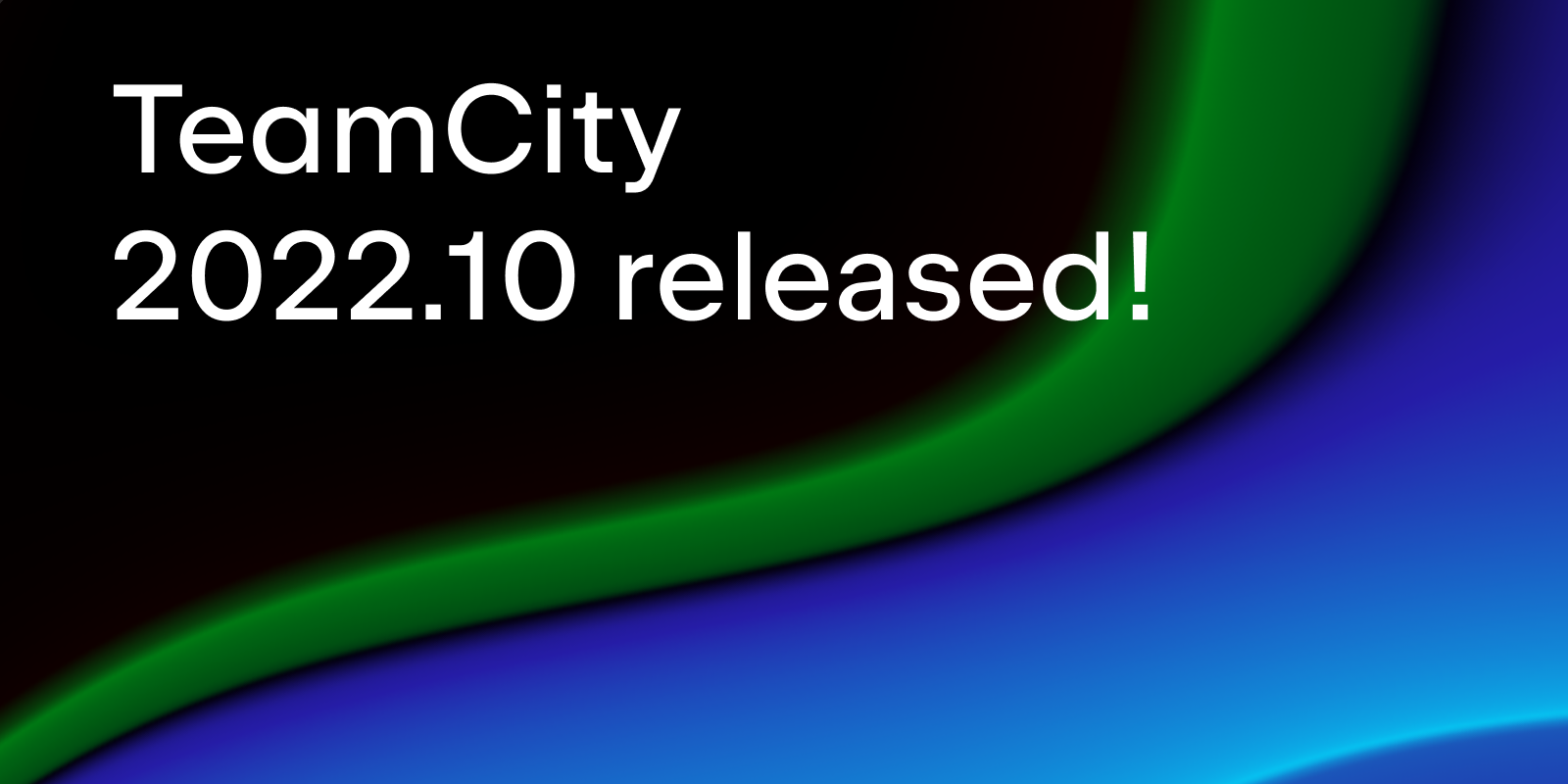
Sakura UI: Perfect in Every Detail
Sakura /sa.ku.ʁa/, or cherry blossom, symbolizes the time of renewal and optimism – and we believe this perfectly describes our feelings as we make the Sakura UI default in TeamCity 2022.10.
The Sakura UI is modern, beautiful and fast. Built with accessibility in mind, it has feature parity with the classic UI, and also brings many new unique capabilities. We’ve been working on the Sakura UI for over four years, and we made sure to make it perfect down to the smallest detail. We had the unique opportunity to test it against thousands of internal and external projects including such giants as IntelliJ IDEA and Kotlin. We believe that you will love it too!
We understand that some of our users may be attached to the old user interface, and for a limited time we will keep it available for them. However, in one of the next versions, we will be deprecating it in favor of the Sakura UI, so if you think that we have missed something, please create an issue in YouTrack.
3, 2, 1, Blast off – to the Cloud!
More and more of our customers are moving their TeamCity installations to the cloud, so we continue to push our cloud capabilities forward.
Easier and more secure management of AWS credentials
We have implemented a new AWS credentials management system that issues temporary, short-live AWS keys and exposes them in a safe way for your builds.
Terminal access to AWS EC2-based build agents
We believe that every development team should have full visibility and control over their delivery pipelines. To improve the debugging experience of cloud CI/CD, we have added the ability to open a secure terminal session to AWS EC2-based build agents directly from the TeamCity UI – without the need to access the cloud provider’s management console or ask a busy DevOps team to set up network access lists and SSH key-pairs.
The availability of the feature is controlled by the “Open an interactive session to the agent” permission that is only enabled for server administrators by default but can be assigned to other users when needed.
Cloud agent maintenance mode
If you’ve ever needed to debug a problem in a CI/CD pipeline that was executed on a cloud instance, you know that it can be tricky. Not only does it require time and effort to identify and spin up the right build agent, but you also need to make sure that it doesn’t launch new builds in the middle of the process.
This is where maintenance mode comes in. In this mode, TeamCity does not automatically terminate cloud agents after the build is finished, and they don’t get allocated for running new builds, allowing you to do the troubleshooting.
Managing cloud instances in a multiserver setup
Starting with TeamCity 2022.10, secondary nodes of TeamCity can start and stop cloud instances, providing uninterrupted operation of cloud-based CI during maintenance of a primary server.
Enhanced VCS Integrations
Perforce
TeamCity 2022.10 comes with two improvements related to the integration with Perforce tools:
- Perforce Shelve Trigger now understands when a shelved changelist is related to a non-default stream and allows the build to be run on it.
- TeamCity now detects changelists that have reviews in Perforce Helix Swarm and adds links to the respective review and change pages in Build Overview and Changes pages, respectively.
Support for refresh tokens in OAuth connections
TeamCity 2022.10 now uses short-lived OAuth tokens when working with GitLab, Bitbucket Cloud, and Azure DevOps, allowing you to create VCS roots without having to manually generate access tokens for these services.
Next-Level Security
Out-of-the-box HTTPS support
Today, CI/CD pipeline security is more important than ever. In version 2022.10, we made it easy to enable HTTPS for your TeamCIty server. All you need to do is to upload an HTTPS certificate, or a certificate chain, in PEM format, and TeamCity will do the rest.
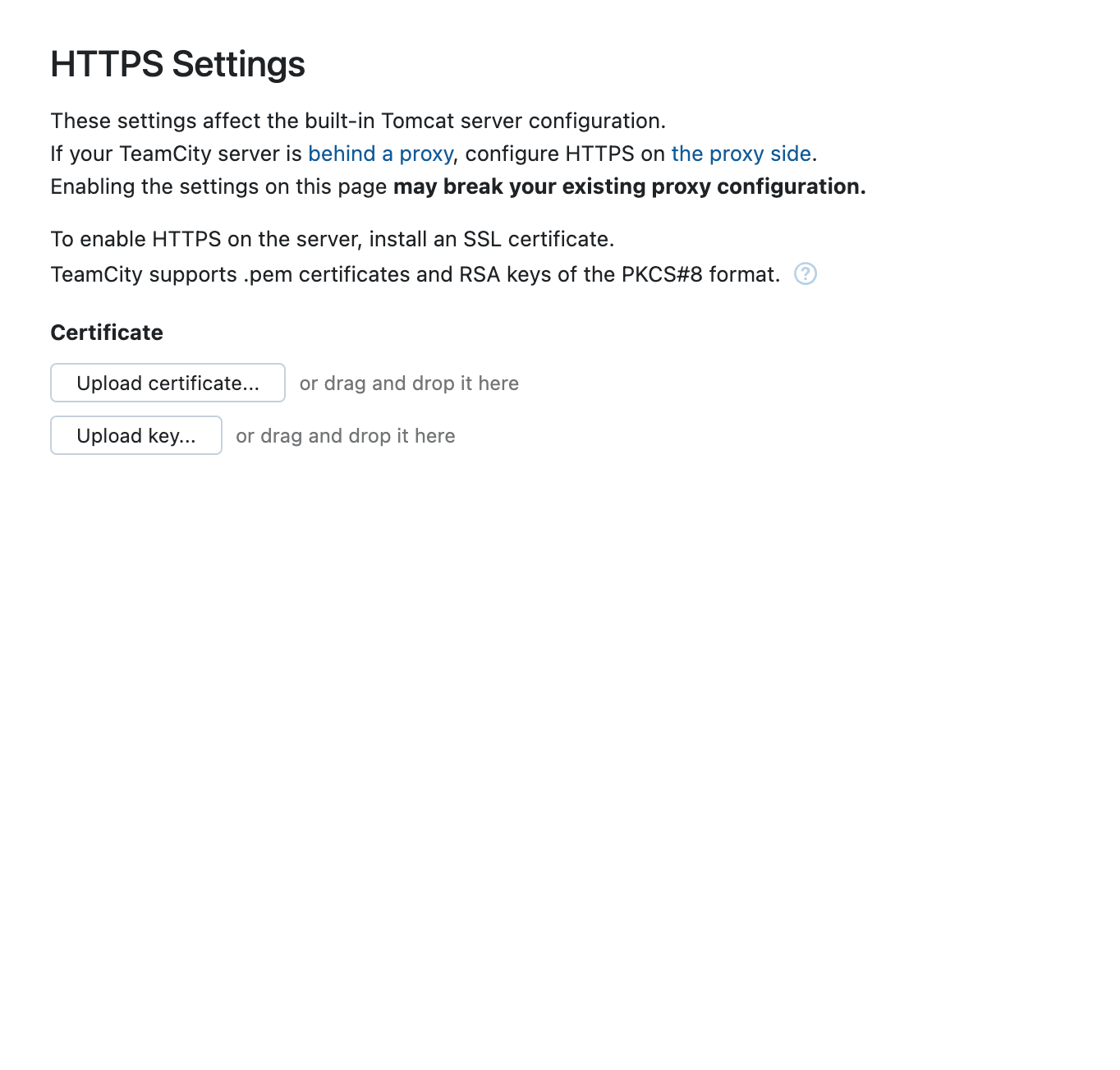
Restricted access tokens
You can now create temporary access tokens that will allow other people to log into TeamCity under your account, but with a limited scope of permissions, for example, with view-only access for one specific project. This can be useful in cases where you want someone to help you debug your pipeline, or when making a demo.
Say Hello with Your Google Account
To support more workflows and make the experience with TeamCity smoother, we now support authentication using Google accounts. When logging in with Google, TeamCity will instantly match the Google email with an existing TeamCity user, and log them in without having to enter a password. It can also automatically create new profiles when new members join your team, provided that their email addresses belong to one of the domain names you specified.
Improved Disk Space Cleanup
The Free Disk Space build feature now keeps track of the size of artifacts and automatically calculates the disk space required for resolving artifact dependencies. This makes the use of the build feature more straightforward, as you no longer have to know the size of the artifacts downloaded during the build, and the only thing you need to specify is the amount of disk space required for the build process itself.
Promotion of Personal Builds
Starting with TeamCity 2022.10, you can promote personal builds. Builds that are triggered after the promotion also become personal builds.
These are just the most important highlights of TeamCity 2022.10. For the full list of changes, please see the TeamCity documentation.
Subscribe to TeamCity Blog updates

